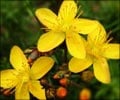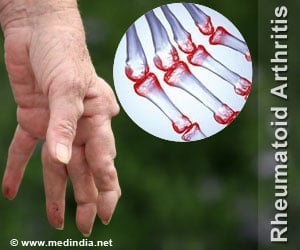Indian and Chinese doctors will collaborate to prove through clinical trials the efficacy of some traditional herbal drugs for which there is no scientific evidence
Indian and Chinese doctors will collaborate to prove through clinical trials the efficacy of some traditional herbal drugs that have for generations been known to cure but for which there is no scientific evidence.
"The protocol of the first such collaboration has been approved by the board members and the final draft report is soon to be submitted to the government for seeking funding," said Ranjit Roy Chaudhury, chair of the Indian Clinical Epidemiology Network (INCLEN) board of trustees and US-based non-profit organisation INCLEN Inc."The project protocol has been signed and we will soon be ready to submit it to authorities for seeking funds," Chaudhury told IANS.
The Indian Council of Medical Research (ICMR) is among the organisations looked at for funding. The first joint clinical research will bring together a number of Indian institutes, including the Post Graduate Institute of Medical Education and Research (PGIMER) Chandigarh, the ICMR, the INCLEN Trust, and the Centre for Evaluation of Traditional Ayurvedic Medicine.
The Chinese collaboration will be led by Ji-Yao Yang of Shanghai Medical College attached to Zhangshajn Hospital at Fudan University in Shanghai.
While not accepting or rejecting the claims of traditional herbal medicinal cures, a large team of specialists, including V.S Mathur, a professor of pharmacology and advisor to Chaudhury, and PGI Director K.K. Talwar, will make efforts to scientifically test the efficacy and safety of herbal drugs.
Non-insulin dependent Diabetes II and inflammatory bowel diseases are medical problems for which the various herbal drugs are to be tested initially. Later, other herbal drugs for hepatitis, HIV/AIDS and other diseases will be taken up for testing.
Advertisement
In India, the clinical trials, expected to take around 18-24 months, will be conducted at PGI Chandigarh under supervision to monitor the efficacy of the drug, standardisation of plants and the dosage of drugs.
Advertisement
The protocol approved by the INCLEN envisages extending the collaboration to other countries like Thailand and Mexico.
It is not just in India and China that herbal drugs are used extensively for ailments and improvement in health but also in the US, where studies have revealed that every third person uses some herbal preparations.
The US herbal drug market, promoted as food supplements, is estimated to be worth around $4-5 billion, said Mathur, who has spent a major part of his life in Bahrain where he taught pharmacology.
"According to the Current Medical Diagnosis and Treatment, considered a bible for medical practitioners, around 30 percent of allopathic drugs originate from herbs," said Mathur.
"Once this clinical trial has been completed and the scientific documentations completed to show the efficacy and safety of the ayurvedic drugs, the results would be accepted by the world community," he said.
The clinical trial will start with a shorter three-month to six-month clinical trial to lay down the methodology of how the herbal drugs are to be tested, the toxicology and its efficacy.
"As these drugs have been used for hundreds of years, we do not see any reason to expect any adverse reaction. If required we will go in for a detailed study to find out how to purify and standardise the ingredients," said Mathur.
Some of the specialists involved in the effort to scientifically test the herbal drugs have been engaged in such an exercise by observing patients who have switched to herbal remedies with allopathic medicines having not provided any relief.
--Edited IANS











